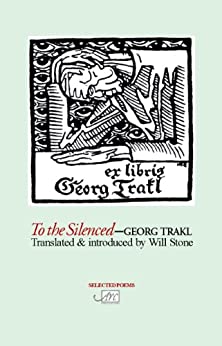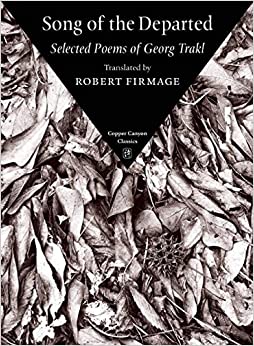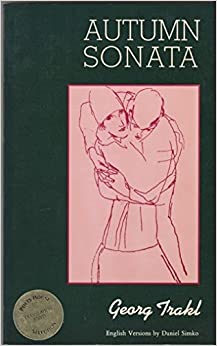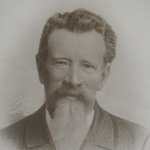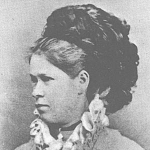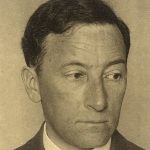Georg Trakl was an Austrian expressionist poet whose personal and wartime torments made him Austria's foremost elegist of decay and death. He influenced Germanic poets after both world wars.
Background
Ethnicity:
Trakl's mother, Maria Catharina Halik, was partly of Czech descent.
Georg Trakl was born on February 3, 1887 in Salzburg, Duchy of Salzburg, Austria-Hungary (now Salzburg, Austria) and was the son of affluent parents. His father, Tobias Trakl, was a dealer of hardware, and his mother, Maria Catharina Halik, was a housewife. She was a drug-addict.
Education
Trakl attended a Catholic elementary school and then matriculated in 1897 at the Salzburg Staatsgymnasium. At the age of 13, Trakl began writing poetry. By 1906, he was forced to leave school prematurely. That year, he wrote two one-act verse tragedies, All Souls Day and Fata Morgana. The former was well-received by his Salzburg audience, while the other was a failure that temporarily blocked his creative impulses.
After leaving high school, Trakl worked for a pharmacist for three years and decided to adopt pharmacy as a career, because this facilitated access to drugs. In 1908, Trakl moved to Vienna to study pharmacy and trained as a pharmacist at the University of Vienna.
Career
Soon after leaving the university, patriot Trakl volunteered for a year in the Austro-Hungarian army and was assigned to the medical corps. After leaving the army and returning to work in Salzburg, Trakl began an apprenticeship in a pharmacy that, unfortunately, and ultimately, fed his future addiction to narcotics. From this point onward, events in his life are inextricably woven into his poetry. His increasing addiction to narcotics is reflected in his use of images, synaesthesia (experiencing one sense through another), and inscrutable personal mythology. Likewise, his experiences during World War I also gave rise to a prolific period, but eventually proved too much for his fragile mental condition.
After finding the working life unendurable, Trakl reenlisted in the army and was put on active duty. In 1912, while stationed in Innsbruck, he met Ludwig von Ficker, editor of Der Brenner. Ficker became friend and mentor to Trakl for the remaining years of his short life, publishing the poet's work regularly in his literary journal. Trakl published his first collection of poetry in 1913, Gedichte (Poems).
While Trakl was still serving in the army, World War I broke out. The war began when the heir to the throne of Austria-Hungary, Archduke Franz Ferdinand, was assassinated by a terrorist in Sarajevo, Serbia, in June 1914. Austria-Hungary soon declared war on Serbia and its allies. Entangling alliances brought nearly every European country into the conflict. Austria-Hungary allied with Germany, Turkey, and, until 1915, Italy, against France, Russia, Great Britain, and, after 1917, the United States. In August 1914, Trakl went to Austrian-controlled Poland as a medic under the command of incompetent Austrian generals.
After a bloody defeat at Grodek, which saw the Austrians lose control of the city, Trakl was left to care for ninety wounded throughout two days and two nights, without supplies or attending physicians. The battle at Grodek caused Trakl to suffer a psychotic episode upon the unit's retreat. He threatened to shoot himself in front of his fellow officers but was disarmed and restrained.
In October, he was ordered to the hospital in Krakow for observation. Ficker hurried to Krakow to secure his release, because he knew that confinement would only cause Trakl's condition to deteriorate. Unable to secure the release, Ficker later received a letter from Trakl and a copy of "Grodek" and "Lament," Trakl's last two poems, the former considered to be one of his greatest lyrics. A week later, Trakl died of an overdose of cocaine. He had been working on his second collection, Sebastian Dreaming, which was published posthumously in 1915.
Views
Trakl was a dedicated perfectionist for whom the craft of poetry meant striving for the absolute truth of expression, purity, and precision of language. His relatively small and cohesive oeuvre is remarkable for the extant number of variant versions of the poems. Though Arthur Rimbaud, Paul Verlaine, and Charles Baudelaire variously influenced his development, Trakl early established a pronounced personal style. This is distinguished by great linguistic concentration, recurrent patterns in diction and imagery, individual use of color symbolism, and a fine lyricism, which set him apart as a distinctive new voice in poetry. Like Friedrich Hölderlin, to whom he owes something of his elliptical conciseness and hymnic intensity, Trakl was essentially a visionary poet in whom the inner vision, the image-making faculty, takes precedence over the mimetic function of creative imagination.
In Trakl's work, the melancholy and elegiac moods predominate, and his poetry heralds the calamity of World War I. The principal subject of this poetry is a darkened world of pain, death, and decay in which man is the passive suffering victim. The poet's self is repeatedly projected into mythopoetic personae who represent pure vessels of violated humanity, yet not without an ethereal strength and some redemptive significance. In Trakl's treatment, established religious imagery is fragmented, inverted, or distorted and projected into startling combinations that produce new resonances and meanings.
Quotations:
"A world without fairy tales and myths would be as drab as life without music."
"Under ancient cypress trees, weeping dreams are harvested from sleep."
"Vision of the night: toads plunge from silver waters."
"A black cavern is our silence."
Personality
Physical Characteristics:
Throughout his short life, Trakl suffered from mental disturbances and persistent schizophrenia. His condition, coupled with his drug and alcohol abuse, led Trakl quickly to his end. By the age of fifteen, Trakl was experimenting with chloroform and had begun drinking heavily.
Georg Trakl died of a cocaine overdose.










